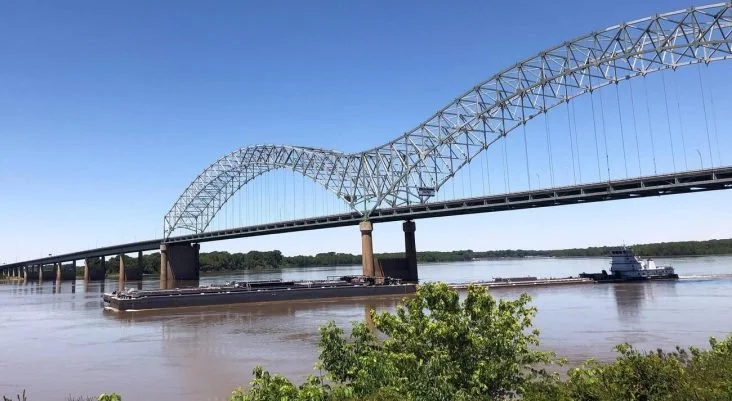by Michael Tilley (mtilley@talkbusiness.net)
The five navigable waterways in or connected to Arkansas are responsible for more than 40,000 jobs in the state and generate an estimated $5.5 billion in revenue for the state economy, according to a new report pushed by the Arkansas Waterways Commission.
The “Regional Economic Impact Study of the McClellan-Kerr Arkansas River Navigation System (MKARNS),” was published for the commission in June 2024 by Heather Nachtmann with the Marine Transportation Research and Education Center (MarTREC) at the University of Arkansas.
Arkansas’ five navigable waterways are the portion of the Mississippi River that is the state’s eastern border, the Arkansas River, and the Ouachita, Red, and White Rivers, according to the commission. Of those, the Arkansas River provides a bulk of the economic impact to the state.






